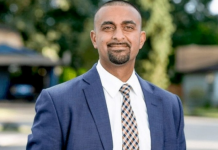Victoria: The British Columbia government is expanding access to opioid treatment medications such as methadone by providing universal coverage to help people with substance use disorders, making it the first province in Canada to do so.
Health Minister Adrian Dix said in a news release Wednesday that full coverage of the medications will be available to B.C. residents under the province’s medical services plan.
The Ministry of Mental Health and Addictions said the policy became effective June 6, and expands full coverage to approximately 1,638 people who had been paying out of pocket for the drugs, out of a total of 34,520 who had been receiving the treatments in B.C. last year.
Dix said improving access to the medication strengthens the public health system.
“By reducing financial barriers to opioid agonist treatment medication, we’re making it easier for people to get the care they need and helping to create more equitable health outcomes for people in B.C.’’
Opioid agonist treatment involves the use of medications such as methadone, and the ministry said it is distinct from safer supply, in which “pharmaceutical alternatives to illicit drugs’’ are prescribed to drive people away from the toxic street-drug market.
The treatment has been proven to work by keeping people from turning to illicit opioids, reducing the risk of death, the news release said.
Elenore Sturko, BC United Opposition critic for mental health and addictions, said in an interview that the funding is a positive step that could have been done years earlier by the NDP government.
She said it was a relatively inexpensive measure to remove costly barriers for the 1,600 or so patients who no longer have to pay for their own opioid agonist treatment medications.
Sturko said many people dealing with addiction still face financial difficulty accessing drug treatment programs, something her party has promised to address should it form government in the future.
Though B.C. is experimenting with decriminalization to remove stigma around drug addiction, Sturko said financial barriers to other drug treatment services also need to be torn down.
“I hope this signals that they are looking at removing financial barriers from all treatment and recovery services in B.C. because it is one of the biggest barriers to people getting the help that they need,’’ Sturko said.
The provincial government’s funding comes amid pushback from B.C. health officials against criticism of the province’s safe supply program and drug policies by federal Opposition Leader Pierre Poilievre and others.
Jennifer Whiteside, B.C.’s minister of mental health and addictions, said in the statement the coverage removes cost barriers to opioid treatments and will help people “stabilize their lives, prevent deaths and stay on their journey to wellness.’’
“The toxic drug crisis continues to claim lives at an unprecedented rate. When people reach out for help, we want them met with support regardless of the size of their pocketbook,’’ Whiteside said.
Dr. Rolando Barrios with the BC Centre for Excellence in HIV/AIDS applauded the province’s move, and said he hoped people on the treatment will stick with it now that financial burdens have been removed.
“We’re good at starting people on therapy,’’ Barrios said. “But if you look at the retention into the treatment side, it’s not great, it’s low. So it’s about one-third of clients are retained, so what I always point out is that they don’t stay long enough in therapy to benefit.’’
“And that’s an area that we need to change. This may contribute a little bit because of course if I don’t have to worry about paying for the medication, it’s more likely that I will adhere to the medication, right?’’ Barrios added.
Contd. on Page 7
Dr. Paxton Bach, co-medical director at the B.C. Centre on Substance Use, said any action to tackle the province’s overdose crisis is welcome, especially when it involves effective, evidence-based approaches like opioid agonist treatment.
By Darryl Greer
The Canadian Press




